Réinventer le monde (autour de l'usine)
Frac Aquitaine presents a solo exhibition of Iratxe Jaio & Klaas van Gorkum. The artists have been invited by curator Alexandra Baurès to pursue their reflection on notions of work and the production of art within conditions marked by globalisation
3 October 2013 - 21 December 2013
Vernissage Thursday 3 October 2013, 18h30
Artist talk between Alexandra Baurès, curator of the exhibition and the artists Iratxe Jaio and Klaas van Gorkum: Thursday 3 October 2013, 17h30-18h30
FRAC AQUITAINE
HANGAR G2, BASSIN À FLOT N°1
QUAI ARMAND LALANDE
33300 BORDEAUX
FRANCE
The two installations that make up the exhibition Autour de l'usine share the same field of observation, that of the factory and of its margins. The starting point is similar - the family history of each artist - but the places are distinct - the Basque Country for Iratxe Jaio and the Netherlands for Klaas van Gorkum - and social conditions related to different work in the north and south of Europe.
Work in progress (2013) takes place in Markina, the childhood village of Iratxe. The rubber factories located in that area outsource a part of their production to groups of women, mostly immigrants, who perform manual tasks at home, or in makeshift workshops. In the video, the artists follow the stages of production, both inside and outside the factory. Work in Progress was produced with support from the Eremuak program of the Basque Government and from the Centre for Visual Art in Rotterdam.
Producing time in between other things (2011) revolves around a cigar box containing drawings and sketches made by the grandfather of Klaas. After retiring from his work at a factory for ships' propellers, Jos van Gorkum dedicated himself to manufacturing wooden objects on a woodturning lathe, welded together from bits of scrap metal by his former colleagues. Producing time in between other things was realized as part of the Latitudes-curated Amikejo exhibition season at MUSAC, León, in 2011.
In both projects, the artists interfere in the production chain, either by putting the lathe of Klaas' grandfather back into operation, or by employing the women from Markina to cast replicas of modernist sculptures, in reference to the "Chalk laboratory" (1972 – 1974) by the Basque sculptor Jorge Oteiza. Industrial work, manual labour and artistic work are represented and put on the same plane, through objects and videos derived from the production process.
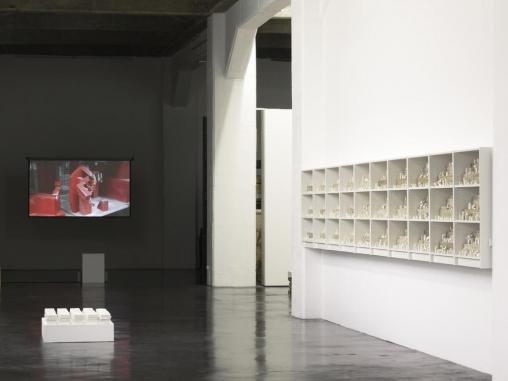
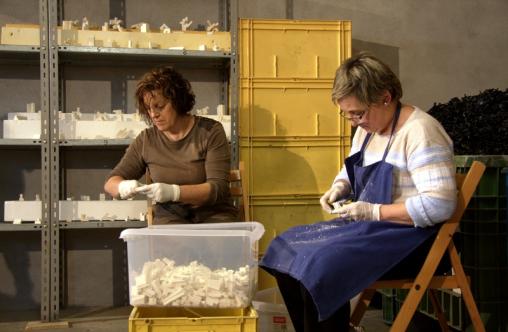
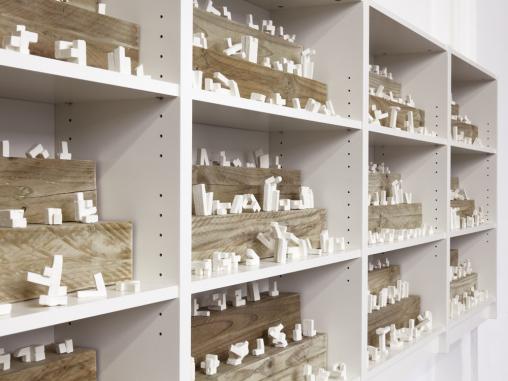
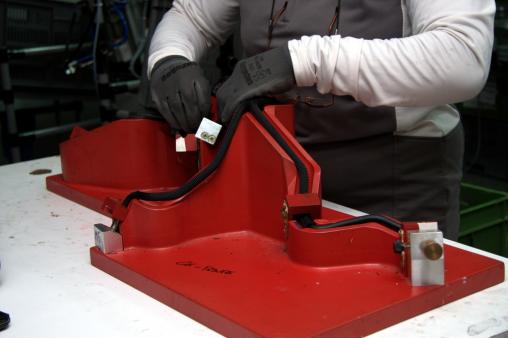
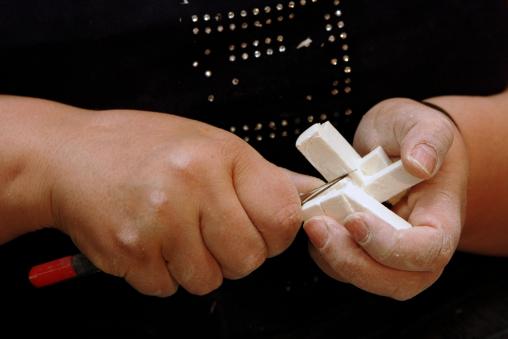






![Gaur [sic]](http://www.parallelports.org/sites/parallelports.org/files/styles/small_cropped/public/field/image/article/gaursic_montajea.jpg?itok=6czeeiAF)







